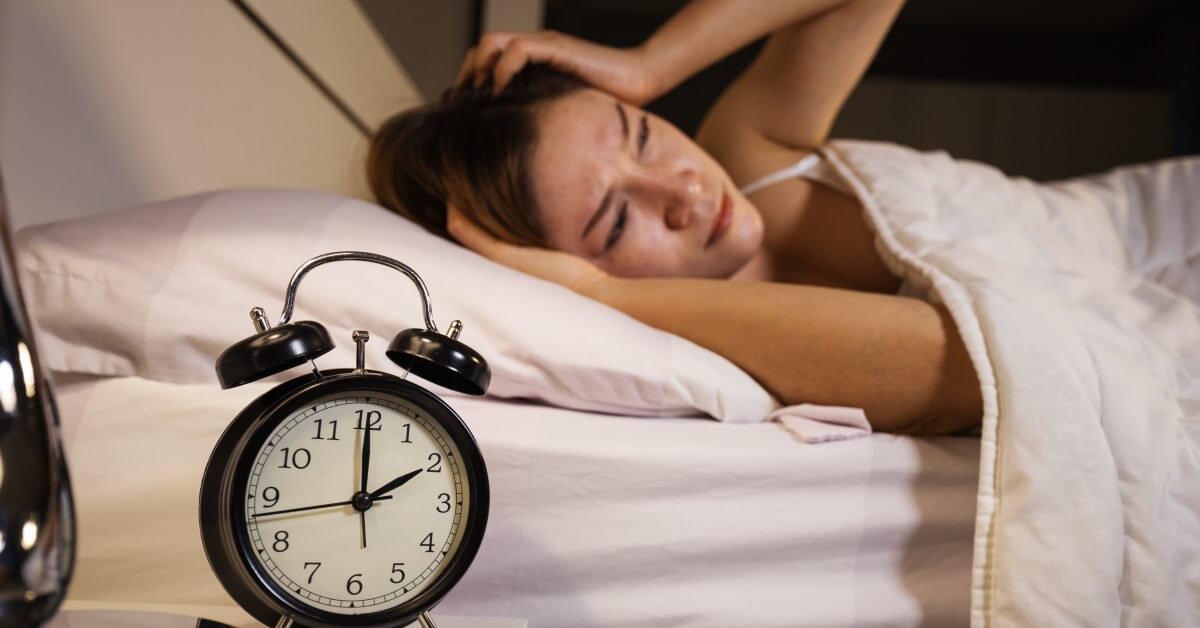
What is Insomnia? | What Causes Insomnia? | When to Seek Help | What Can be Done?
Overview
You know the feeling. You lie in bed tossing and turning, with sleep seeming to drift further and further out of reach.
Or you may be all too familiar with that feeling of waking up way before the alarm clock, unable to fall back asleep, yet tired enough to do so. You finally get out of bed, exhausted, groggy, and unprepared to face the day.
That frustrating situation is insomnia, and although most people will experience it occasionally, a third of us are dealing with a chronic, long-term version of this common sleep disorder,[1] and that number is growing.
The prevalence of insomnia in our society is driven by multiple outside factors such as the omnipresence of social media, our increasingly connected world where often stressful information is everywhere and coming at us at never-before-seen speed, and less time to unwind and practice self-care.
An inability to fall asleep or stay asleep for the desired time is perfectly normal occasionally, but when the struggle lasts for weeks or even months, it may be time to seek help.
What is Insomnia?
Insomnia is defined as a common sleep disorder that affects sleep duration and/or sleep quality.
Difficulty falling asleep is called onset insomnia, while problems staying asleep is known as maintenance insomnia. It is also possible to have both at the same time.
As a result of being unable to get sufficient quality sleep, multiple symptoms can develop that have real and negative impacts on a person’s quality of life.[2] These commonly include:
- Difficulty falling asleep
- Waking up during your desired sleep time (fragmented sleep)
- Waking up too early
- Daytime drowsiness or sleepiness
- Irritability
- Not feeling refreshed after sleep
- Depression
- Anxiety
- Loss of focus, brain fog
The issue can be further compounded by the fact that people who experience insomnia in any form for an extended time start to develop worries about sleep. This anxiety then further fuels insomnia, becoming a vicious cycle.
What Causes Insomnia?
The sleep disorder can be a primary health concern or a secondary one, in which case an underlying physical or mental health problem is causing it.
Common primary causes of insomnia are:
- Stress and anxiety
- Irregular sleep habits
- Stimulating electronics (especially before bedtime)
- Exercise or eating too close to bedtime
- Alcohol/substance use
- Excessive caffeine intake
- Decreased activity levels
- Certain medications

When to Seek Help
Sometimes it’s enough to make changes based on the symptoms (refraining from smartphone or tablet use before bedtime or avoiding that late afternoon shot of espresso, for example), but all too often, more is needed.
There are some general guidelines for when it’s time to get help for insomnia:
- Symptoms have been ongoing for three months or more
- Feeling tired, sluggish, and unproductive all the time
- Home remedies don’t seem to work
- In addition to insomnia, you are snoring very loudly when you do sleep (this could be an indication of sleep apnea which can be a serious disorder)
If you are experiencing any of the above symptoms, please see your doctor or sleep specialist.
What Can Be Done?
Fortunately, insomnia can be managed. Your healthcare professional may advise of several different treatment methods, including a change in the dosage or type of prescription medications, addressing any physical concerns driving the sleeplessness, or suggesting cognitive approaches such as cognitive behavioral therapy for Insomnia (CBT-I).[3]
The latter mode of treatment approaches insomnia from a psychological and behavioral angle and is a lifelong solution for managing sleeplessness.
What’s the Takeaway?
Sleep, diet, and exercise are part of the three pillars of health and should not be neglected, as health issues can arise or worsen due to extended sleep deprivation.
Insomnia can disrupt one’s quality of life for one night, let alone for weeks, months, or even years on end.
Knowing when to seek help can get you back on the path of restful, refreshing sleep and toward a healthier future.
References:
- Roth T. (2007). Insomnia: definition, prevalence, etiology, and consequences. Journal of clinical sleep medicine : JCSM : official publication of the American Academy of Sleep Medicine, 3(5 Suppl), S7–S10. https://www.ncbi.nlm.nih.gov/pmc/articles/PMC1978319/
- Buysse DJ. Insomnia. JAMA. 2013 Feb 20;309(7):706-16. doi: 10.1001/jama.2013.193. PMID: 23423416; PMCID: PMC3632369.
- Haynes J, Talbert M, Fox S, Close E. Cognitive Behavioral Therapy in the Treatment of Insomnia. South Med J. 2018 Feb;111(2):75-80. doi: 10.14423/SMJ.0000000000000769. PMID: 29394420.

